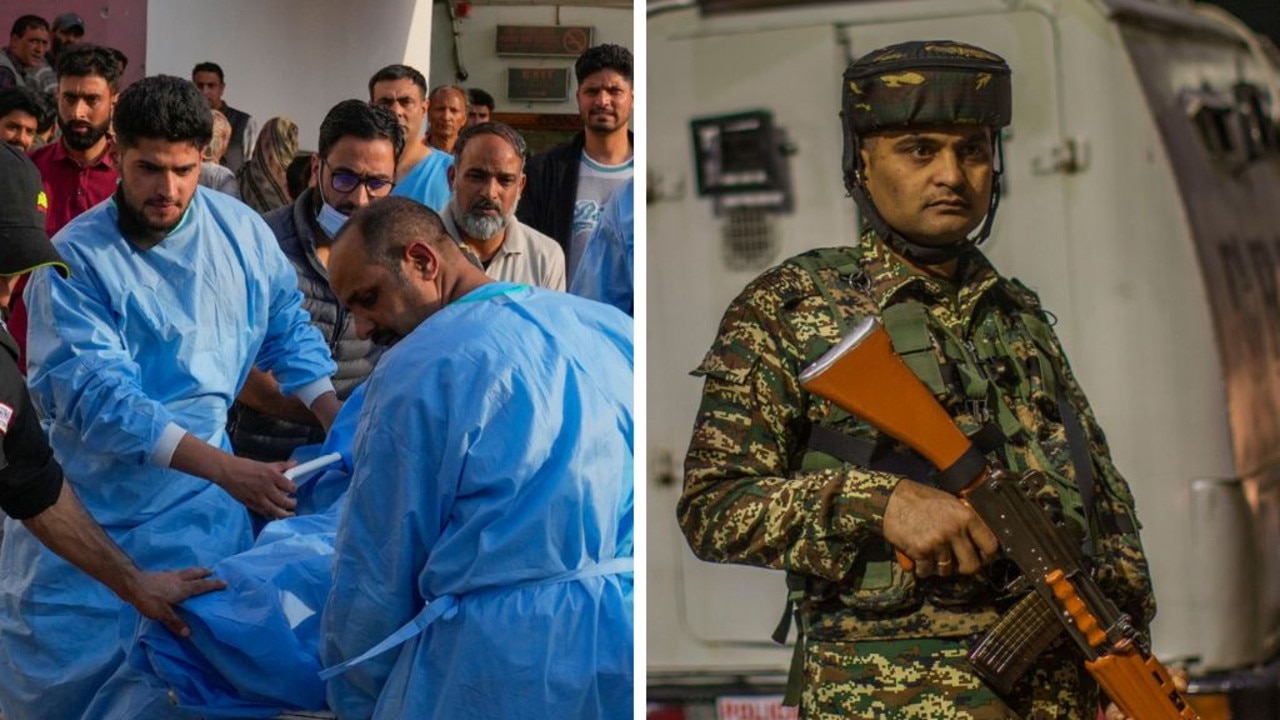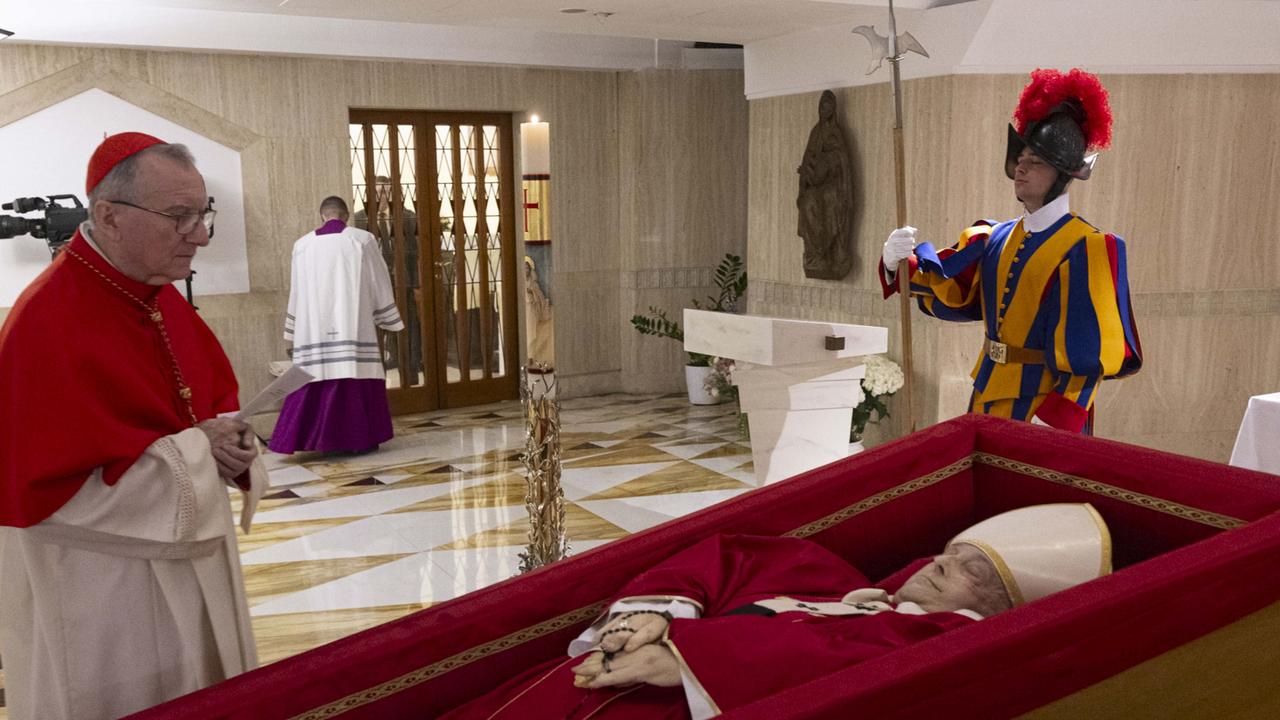Sudanese capital in flames as war rages across embattled nation
The heart of a nation has been rocked by chaos— as a huge fire tears through a symbolic tower and things go from bad to worse.
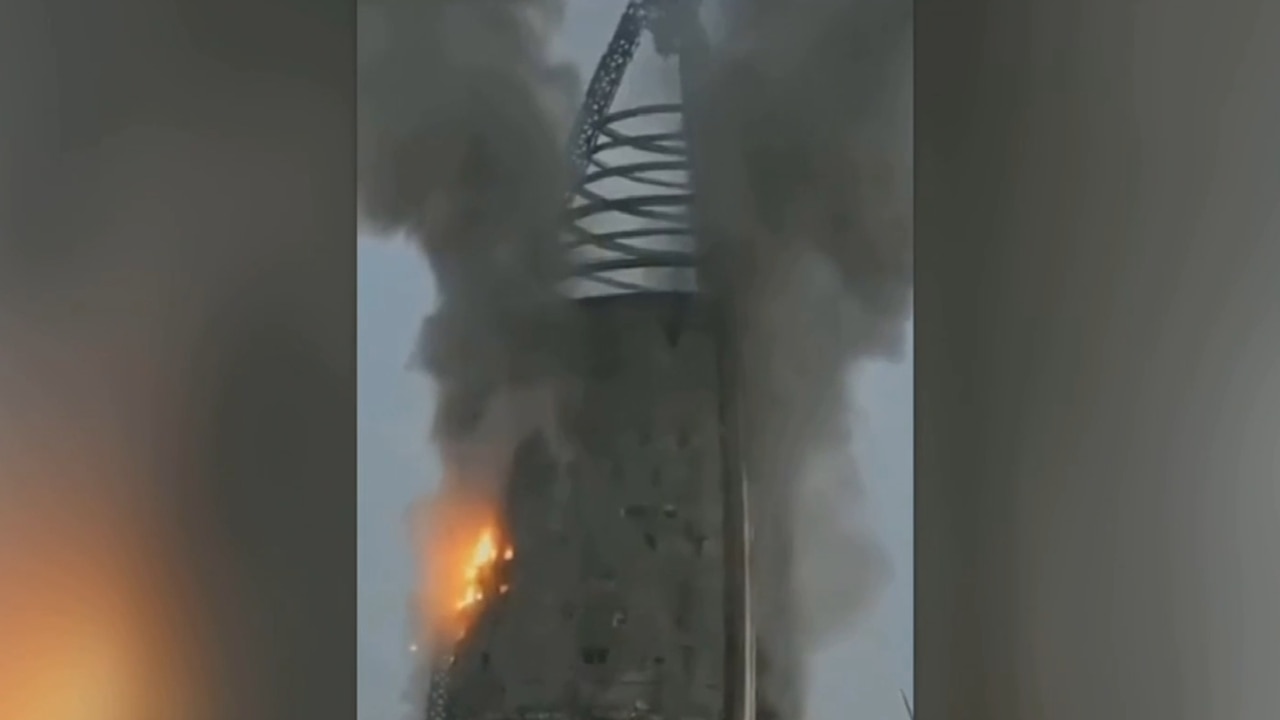
Six months of raging internal conflict are worsening in the African nation of Sudan, with paramilitary forces attacking the army headquarters for the second day in a row.
Flames gripped the Sudanese capital Sunday, with a number of the city’s major buildings going up in smoke.
In social media posts, users shared footage of flames devouring landmarks of the Khartoum skyline, including the ministry of justice and the Greater Nile Petroleum Oil Company Tower — a conical building that had become an emblem of the city.
“Clashes are now happening around the army headquarters with various types of weapons,” one Khartoum resident said.
Other witnesses in southern Khartoum said they heard “huge bangs” as the army targeted bases of the Rapid Support Forces paramilitaries with artillery.
Witnesses also reported fighting in the city of El-Obeid, 350 kilometres south.
Nawal Mohammed, 44, said battles Saturday and Sunday between the regular army and the paramilitaries have been “the most violent since the war began”.
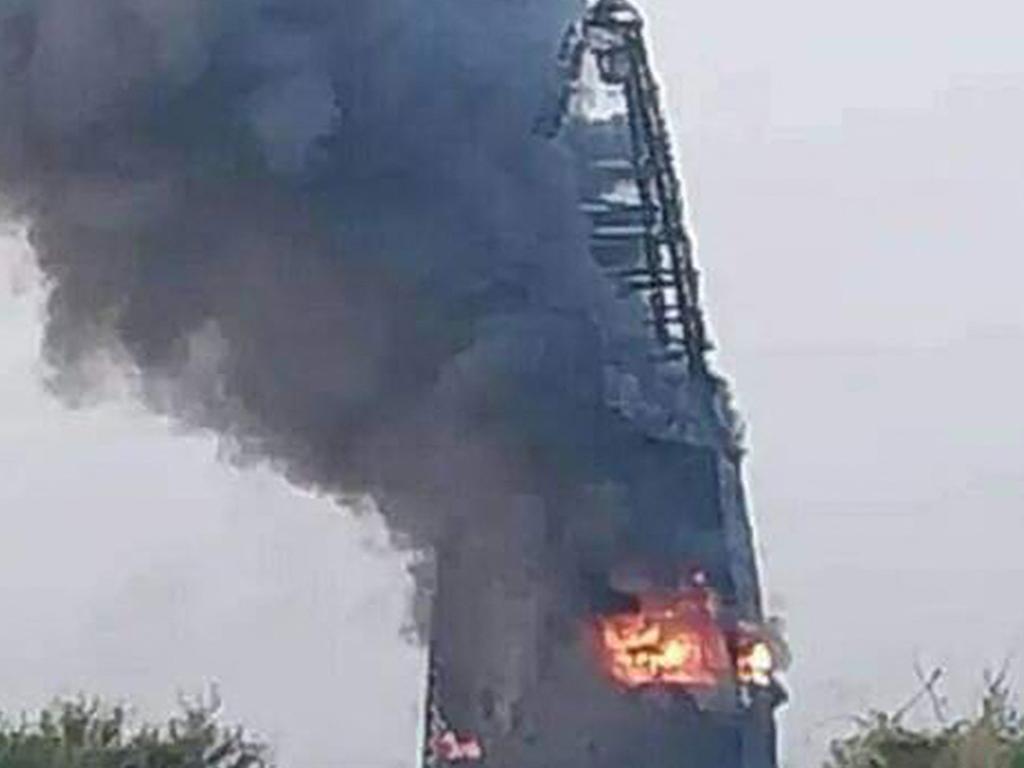
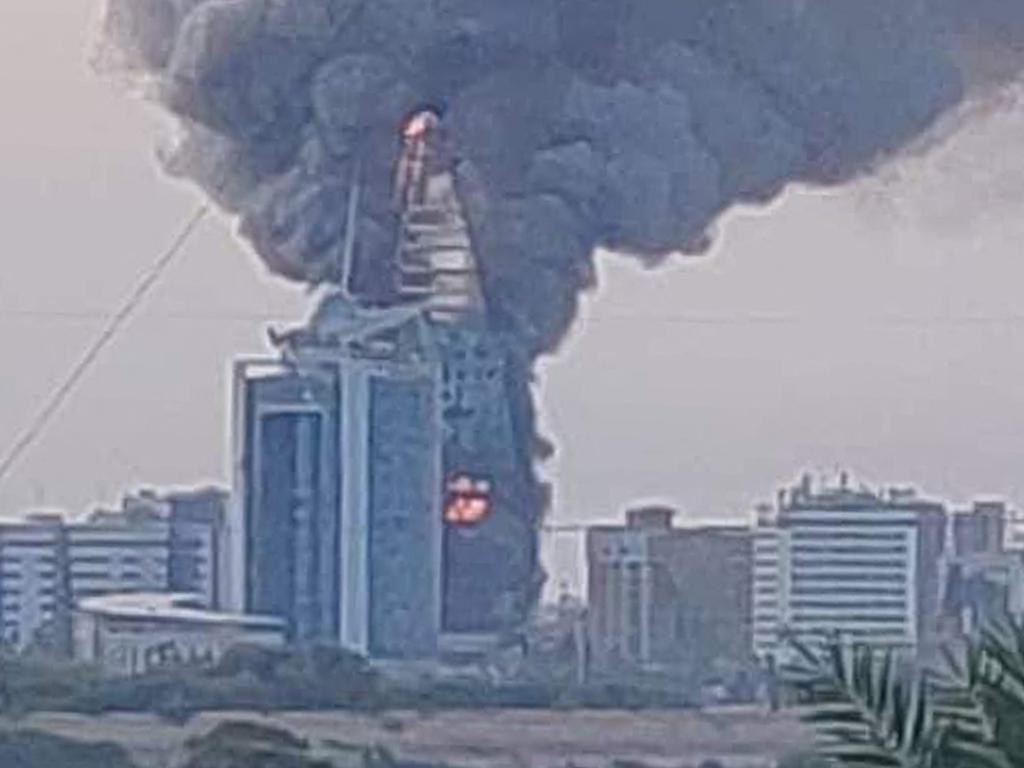
Though her family lives at least three kilometres away from the nearest clashes, Mohammed said “doors and windows shook” with the force of explosions, while several buildings in central Khartoum were set alight.
Other posts showed buildings — their windows blown out and their walls charred or pockmarked with bullets — smouldering.
“It’s distressing to see these institutions destroyed like this,” Badr al-Din Babiker, a resident of the capital’s east, told AFP.
The fighting broke out on April 15 between forces loyal to army chief Abdel Fattah al-Burhan and his deputy turned rival Mohamed Hamdan Daglo, who commands the powerful paramilitary Rapid Support Forces (RSF).
Daglo’s RSF emerged from the Janjaweed fighters whom former leader Omar al-Bashir unleashed in the Darfur region, where they were accused of war crimes including genocide.
The military toppled Bashir in April 2019 following mass citizen protests.
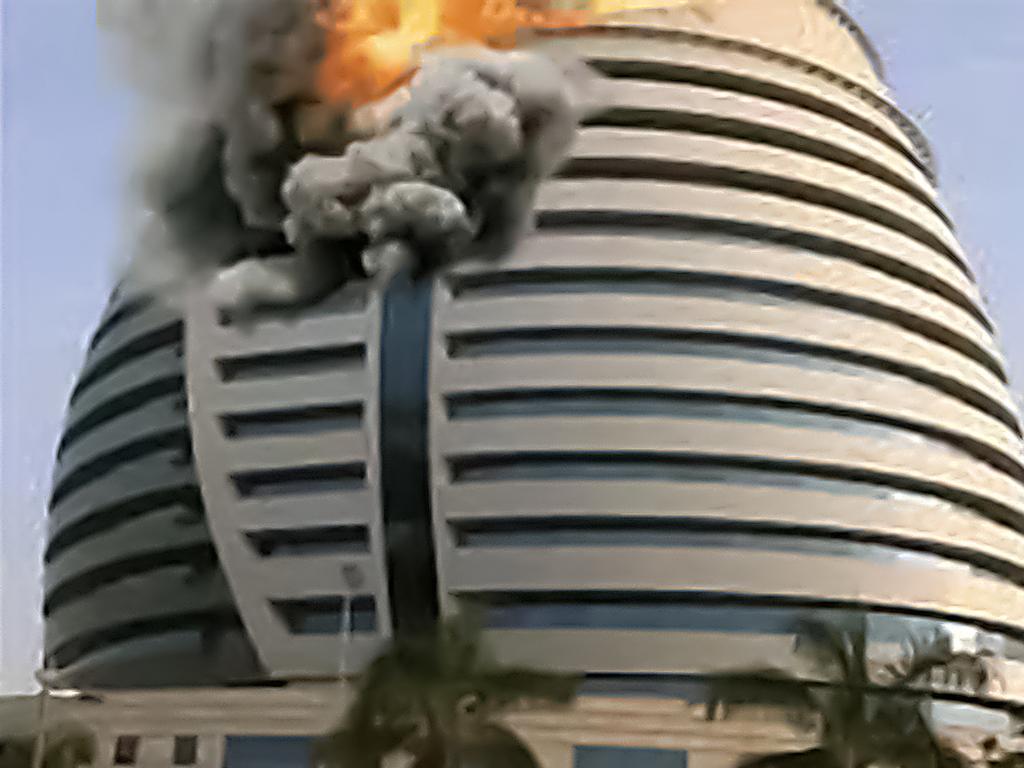
The two generals seized power in a 2021 coup, but later fell out in a bitter power struggle, most recently centred on the planned integration of the RSF into the regular army.
Nearly 7,500 people have been killed in the months following, according to a conservative estimate from the Armed Conflict Location & Event Data Project.
Civilians and aid workers have warned that the real toll is far higher, as many of those injured or killed never make it to hospitals or morgues.
In May, 36 Australians were evacuated from danger zones as countless others fled the capital, assisted by a United Nations convoy.
Millions of frightened residents were forced to hunker down inside their homes, with many running low on water and food.

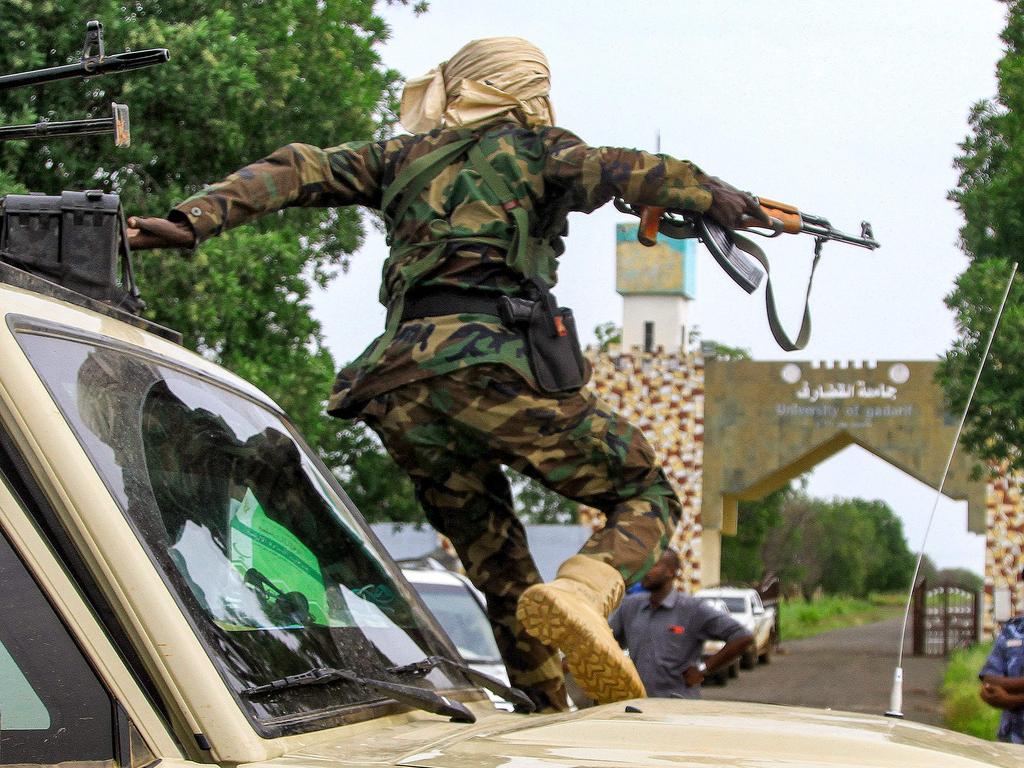
A committee of volunteer pro-democracy lawyers on Sunday said the fighting in Khartoum since Friday had killed dozens of civilians in “continued disregard for international humanitarian law”.
“We are working to determine the number of civilian victims” of “arbitrary shelling”, the group said in a statement.
The war in Sudan has decimated already fragile infrastructure, shuttered 80 per cent of the country’s hospitals and plunged millions into acute hunger.
More than five million people have been displaced, including 2.8 million who have fled the relentless air strikes, artillery fire and street battles in Khartoum’s densely-populated neighbourhoods.
Five minutes of eerie dystopian horror, this video gives a sniper’s view of the wasteland that was once the civic heart of Khartoum, the capital of a nation of 45 million people. It was filmed yesterday near the Goethe-Institut Sudan. For details: https://t.co/8ersBbsaeApic.twitter.com/GFxkMeoVGO
— خواجة مسكين (@daniel_van0) September 17, 2023
Millions who could not or refused to leave Khartoum remain in the city, where water, food and electricity are rationed.
The violence has also spread to the western region of Darfur, where ethnically-motivated attacks by the RSF and allied militias have triggered renewed investigations by the International Criminal Court into possible war crimes.
There has also been fighting in the southern Kordofan region, where witnesses again reported on Sunday artillery fire exchanged between the army and the RSF in the city of El-Obeid.


